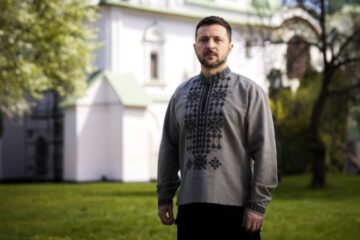
Germany has refrained from commenting on how social assistance will be provided in the future for Ukrainians who sought refuge in the country following Russia’s full-scale invasion.
This response comes from inquiries made by Ukrinform to relevant German government agencies.
“Given the current internal political developments, it is currently impossible to make any statements,” Germany’s Ministry of the Interior stated.
The ministry recalled that, following Russia’s aggression against Ukraine in February 2022, EU member states activated Directive 2001/55/EC on temporary protection for Ukrainians, in line with EU Council Implementing Decision 2022/382 of March 4, 2022. Temporary protection has been extended multiple times at the EU level, most recently through EU Implementing Decision 2024/1836, which prolongs protection until March 4, 2026.
“Until March 4, 2026, the conditions for obtaining a residence permit under paragraph 24 of the Residence Act for temporary protection will remain unchanged in Germany,” the German Ministry of the Interior assured.
At the same time, the ministry noted that the coalition agreement between the CDU, CSU, and SPD includes provisions for a possible shift in jurisdiction concerning Ukrainian refugees who arrived in Germany after April 1, 2025.
Regarding future payments to Ukrainian refugees following the discontinuation of basic state social assistance (Bürgergeld) from employment centers, the ministry advised consulting the parties involved in negotiating the coalition agreement, as well as the Ministry of Labor and Social Affairs.
The Ministry of Labor informed Ukrinform that discussions on adopting the coalition agreement are still ongoing. So far, only the Christian Social Union has approved its text, while the Christian Democratic Union and the Social Democratic Party have yet to finalize their positions.
“The implementation of projects outlined in the agreement, including the proposed change in legal jurisdiction for Ukrainian refugees, will depend on the further legislative process,” the ministry stated.
Additionally, officials emphasized that the existing legal framework remains in effect for individuals currently arriving in Germany.
As reported, Germany’s likely next chancellor Friedrich Merz during the election campaign announced plans to abolish the social payments’ system, which, in his opinion, should lead to people actively looking for work instead of living on state benefits (single adults and single parents receive €563 per month, married couples receive €506 per person, children under 5 years of age receive €357 per month). Ukrainians who were accepted by Germany after the start of the full-scale invasion received these payments (unlike all other migrants and asylum seekers). According to some reports, more than 700,000 people out of 1.2 million Ukrainian citizens still depend on such assistance. In addition, Ukrainian refugees were also entitled to state payments for rented housing.
In the future, Ukrainians are expected to receive assistance comparable to that provided to asylum seekers from other countries, which will involve significantly smaller amounts, including reduced basic insurance coverage.
Merz’s CDU party successfully included this provision in the draft coalition agreement, which, if approved by all parties, will serve as a roadmap for the next German government.
Photo credit: realgazeta.com.ua
Source: Germany refrains from commenting on future payments for Ukrainian refugees under the next government



